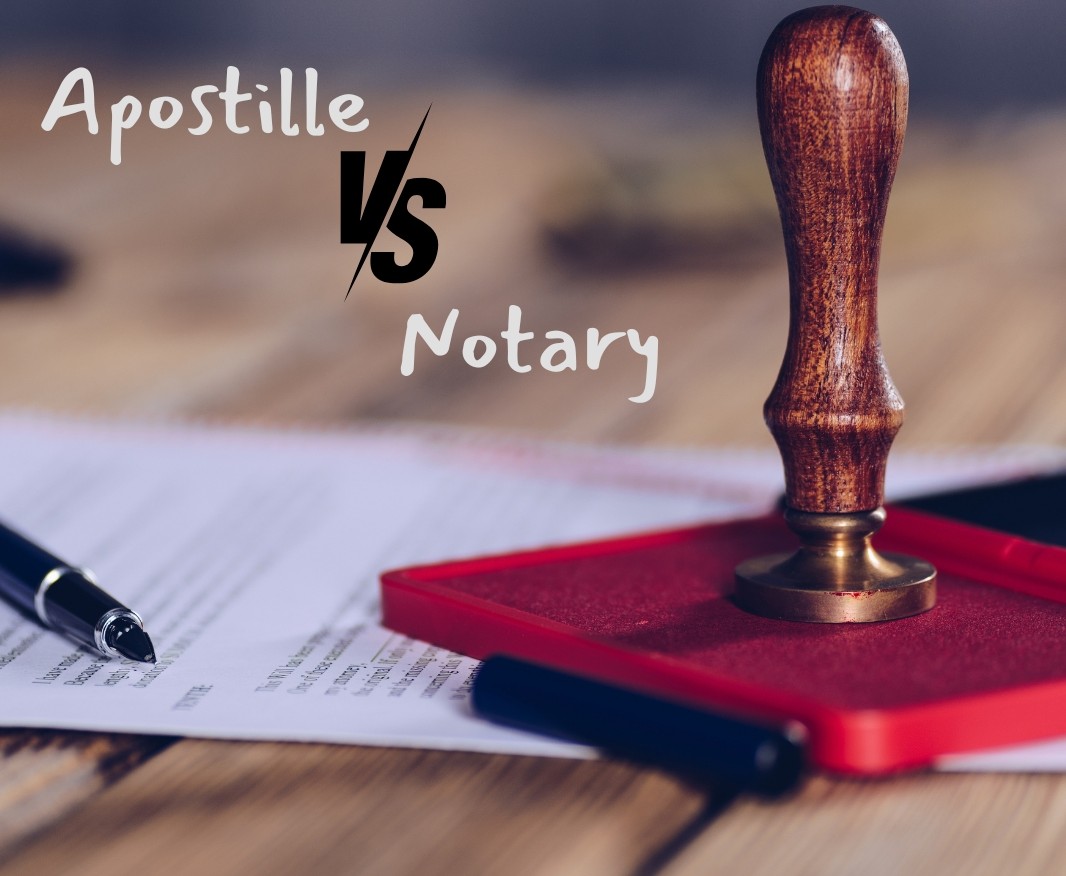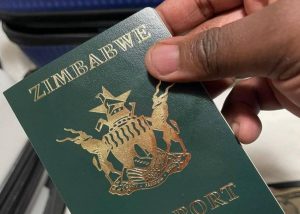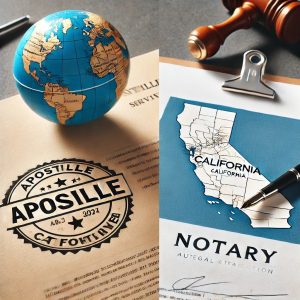We encounter all kinds of questions about document legalisation, and one that clients often ask is: Are notarisation and apostille the same thing in South Africa?
While both an apostille and notarisation guarantee the legal validity of documents, they are not the same thing in South Africa.
Notarisation ensures that a document will be accepted as legally binding within South Africa, whereas an apostille guarantees that a document signed and notarised in South Africa will be valid and accepted in any country participating in the Hague Convention of 1961.
Though the situations in which you may need an apostille or notarisation are similar, there are critical differences between these two types of document certification. In this article, titled ‘Are notarisation and apostille the same thing in South Africa?’, we break down the function and purpose of each to help you understand when you would need an apostille or notarisation.
What is notarisation in South Africa?
In South Africa, a notary public is a qualified legal professional admitted and authorised by the High Court to witness and authenticate document signings as an impartial third party. Notarisation ensures that documents are recognised as genuine by the relevant authorities, safeguarding against fraud and ensuring the integrity of legal transactions, particularly those intended for foreign countries.
For document recognition abroad, notarisation is an important preliminary step to apostille or legalisation. It is often necessary to provide certified true copies or notarised originals (depending on the requirements of the relevant foreign embassy, consulate or mission) with certified (notarised) translations if the document is not in English.
When do you need notarisation in South Africa?
Notarising documents is a common requirement for legal documents or major transactions. This includes affidavits, agreements, wills and real estate deeds. For example, if you are a South African immigrating to a country like Saudi Arabia, you may need to provide certified true copies or notarised originals. Similarly, sworn statements made under oath must be notarised to be considered valid. Therefore, before submitting any important paperwork, it is advisable to confirm whether notary services are required.
Who can perform notarisation in South Africa?
Only notaries public who are admitted and authorised by the High Court have the exclusive authority to notarise documents in South Africa. These officials are specialists who are registered with the legal regulatory body after meeting rigorous educational and testing criteria. Notaries must have a thorough understanding of the legal implications of the documents they notarise, which makes them indispensable when it comes to authenticating signed documents. Appointed by the High Court, they possess broader powers than attorneys, particularly with regard to creating certain legal and public documents.
Common Documents That Require Notarisation
Many legal documents require notarisation as a trusted verification method. Some of the most common include:
- Personal affairs: Copies of documents, powers of attorney, wills and trusts.
- Family matters: – Prenuptial agreements and adoption papers.
- Property transactions: Deeds of sale, mortgage bonds and leases.
- Corporate documents: Company formations, mergers and memoranda of incorporation.
Almost any document can be notarised to enhance its legal legitimacy. For instance, a notarised agreement authenticates the enclosed information through signatures, verifying the identities and consent of the signatories.
What is an apostille in South Africa?
An apostille is a certificate that authenticates a document to be used in proceedings in a foreign country. An apostille guarantees the authenticity of a document signature and any notarial stamps/ seals affixed to the document.
Apostilles are attached to the original document they are certifying and ensure that the certification will be accepted in any other countries that are members of the Hague Apostille Convention.
Apostilles ensure that notarised legal documents are recognised as valid across borders. Although every country has its own laws and procedures for notarising documents, apostilles provide an international guarantee that these requirements have been met.
The types of documents that may require an apostille include:
- Birth/ death certificates
- Marriage/ divorce certificates
- Court documents
- Police clearances
- Immigration supporting documents
- Diplomas/ certificates
Apostille certificates are issued by either the Consular Section of the Department of International Relations and Cooperation (DIRCO) or the courts in South Africa.
When Do You Need Apostille Services?
South Africans require an apostille in a number of situations. One common example is studying abroad. For example, if you are relocating to Spain for academic reasons, you will most likely need to send in your transcripts and degrees. If the institution requires proof of the authenticity of these documents, apostille services are the solution. This certification may also be required when applying for dual citizenship, getting married abroad, conducting international business or handling foreign real estate transactions.
Common Documents That Require an Apostille
As you’ve probably gathered, there are plenty of situations that require an apostille. Likewise, depending on the specific case, you may need authentication for a variety of documents to use overseas. Here are some common examples based on type:
- Personal or family documents: Birth/marriage/death certificates, Police clearances.
- Academic papers: Diplomas, degrees, certificates, and transcripts.
- Corporate documents: Contracts, agreements, powers of attorney, corporate invoices, and articles of incorporation
- Court/Legal papers: Affidavits, FBI records, criminal history reports, and court orders.
The Hague Convention and Apostilles
Countries that are members of the Hague Convention recognise an apostille as valid certification, eliminating the need for additional verification by a diplomatic office. South Africa, most of Europe and many other countries are signatories to this treaty, which makes it easier to prepare documents for legal use. Therefore, if you are sending documents to one of these countries, an apostille is all that is required. Otherwise, additional authentication, such as embassy legalisation, is required for destinations that are not members.
Key Differences Between an Apostille and Notarisation
The difference between apostille and notarisation can still be confusing for many South Africans. To clear things up, we have prepared a detailed breakdown of their key differences. Read on to find out how to make the right choice and speed up legal proceedings, both domestically and overseas.
Purpose and Legal Effect
When considering getting documents notarised and apostilled, it is important to understand the differences between the two processes. Notarisation ensures that a document will be accepted as legally binding in South Africa, provided it is notarised in accordance with the guidelines of the country in which it is signed. Conversely, an apostille guarantees that a document signed and notarised in South Africa will be valid and accepted in any other country that is a signatory to the 1961 Hague Convention.
The Process of Obtaining Each
To have a document notarised, simply visit a notary’s office or arrange an online session. The notary will then verify your identity, witness your signature and apply their seal in just a few minutes, all for a small fee. By contrast, getting a document apostilled involves submitting papers to DIRCO or the High Courts and waiting several days. In some cases, documents must even be notarised before being sent in for an apostille, adding another step to the process.
Faqs about notarisation and apostille in South Africa
- What is a Notary Public in South Africa?
A Notary Public is an attorney admitted and authorised by the High Court of South Africa to witness signatures, draw and attest contracts and statements, and authenticate the validity of certain documents.
- Is a Notary Public an attorney?
Yes, a Notary Public is an admitted attorney who has passed the practical examination in respect of the practice, functions and duties of a notary.
- What are the signing requirements for notarial documents?
The requirements for document legalisation may vary depending on the destination country. For example, it may need to be signed in the presence of a notary public, or one or more witnesses may also be required. Once notarised, the document may require apostille, authentication or legalisation from the High Court of South Africa, the Department of International Relations and Cooperation (DIRCO), or other government offices, depending on the document’s purpose and the destination country.
- How long is a notarised document valid?
A notarised document itself does not have an expiry date; its validity depends on the underlying document’s validity and the requirements of the authority to whom it is being submitted,
Global Apostille at Your Service!
To ensure the legality of your immigration documents internationally, they must be validated with a South African apostille. At Global Apostille, we offer an express notarisation, DIRCO and High court apostille service to help you obtain your documents quicker. Our service is the fastest in Johannesburg, Pretoria, and the Gauteng area. For more information on our services please feel free to contact us. Tel: 012 348 3134| Mobile: 081 347 6060 | Email: info@apostillelegalisation.co.za












